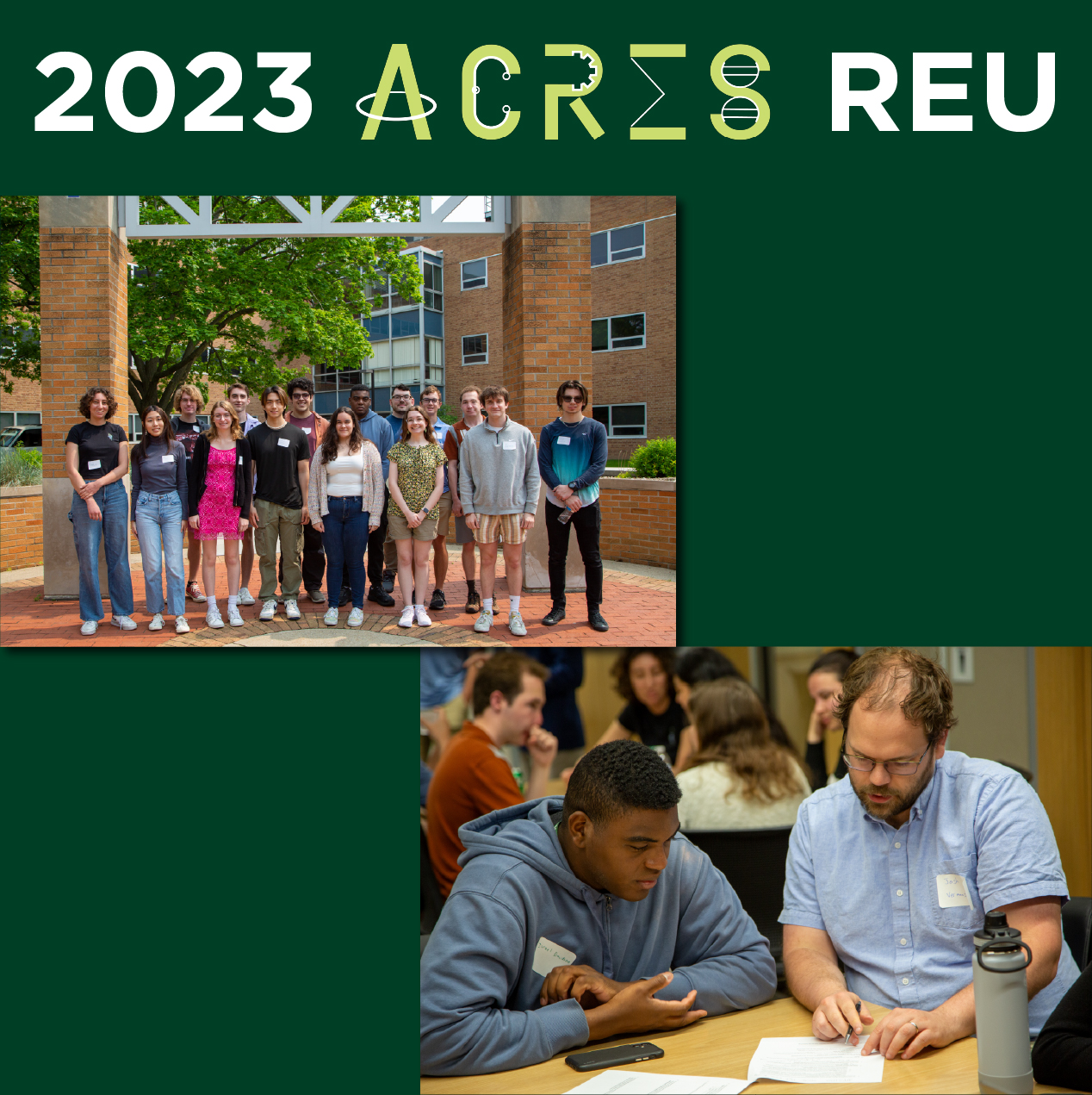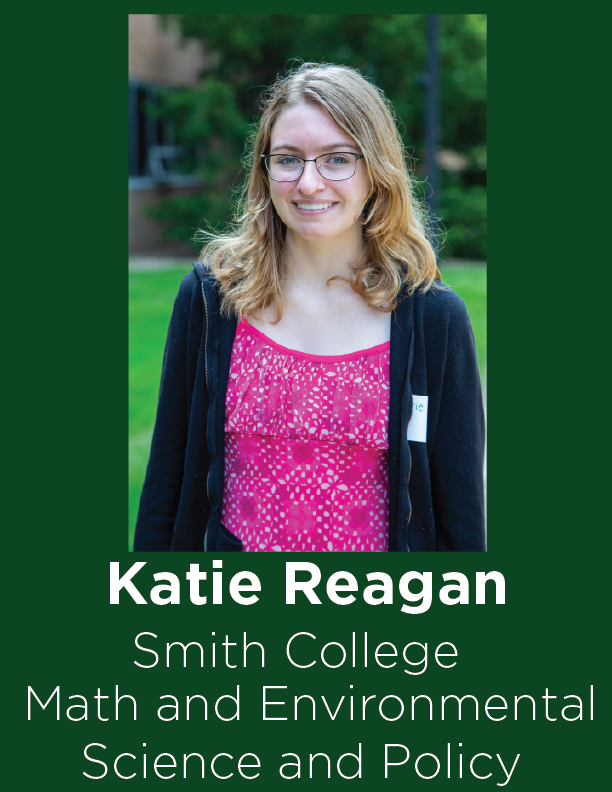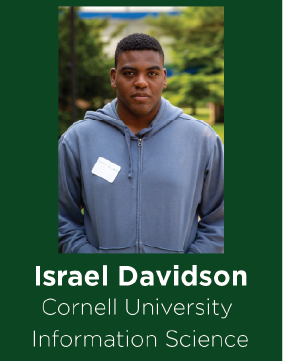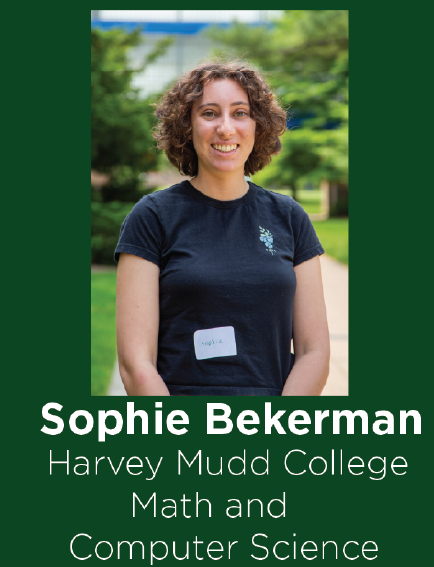Undergrads Experience Computational Research in Summer Program

The Advanced Computational Research Experience for Students (ACRES) program is a Research Experience for Undergraduates (REU) sponsored by the National Science Foundation. It is coordinated by Michigan State University’s Department of Computational Mathematics, Science and Engineering (CMSE) and the Institute for Cyber-Enabled Research (ICER).
The 2023 cohort has successfully concluded another summer filled with exciting research and development opportunities. The ACRES REU program is dedicated to providing undergraduate students with real-world experience across various research fields, including computational chemistry, astrophysics, and mathematics. It also offers workshops and development activities to aid students in their professional growth.
Mahmoud Parvizi, a former REU student turned mentor and now program facilitator, plays a pivotal role in managing and planning the ACRES REU program. Parvizi works at ICER as a research consultant, offering support to a diverse range of researchers utilizing the High-Performance Computing Center.
“The primary focus of the program is to place the student in the research, but aside from that, we’ll provide some introductions on applications of high-performance computing, how to use some of the high-performance computing systems, and other general programming-related topics,” shared Parvizi.
He continued, "[Students] also sit through a series of professional development events. Those include things like how to review the existing scientific literature, how to create an academic resume, even things as nuanced as how to discover if graduate school is an interest for you or maybe a career in the industry is a better fit."
 This year's cohort spanned a wide array of academic disciplines and delved into diverse research topics. For instance, ACRES student Katie Reagan conducted research on manual image segmentation, which involves determining the time it takes for a human to segment an image by assigning one color to the subject and another to the background.
This year's cohort spanned a wide array of academic disciplines and delved into diverse research topics. For instance, ACRES student Katie Reagan conducted research on manual image segmentation, which involves determining the time it takes for a human to segment an image by assigning one color to the subject and another to the background.
While working on these diverse projects, the program provides students with ample guidance through their mentors and graduate students while fostering a strong sense of independence.
"Even though I definitely have a high degree of independence, it doesn’t feel like I’m just being pushed off the edge into the research," stated Reagan. "I definitely have a good amount of guidance. [ . . . ] When you’re entering a program like this, you’re not going to be working by yourself all the time. You have a lot of workshops, and different opportunities to connect with fellow students."
ACRES student Israel Davidson's research centered on plant biology. He explored whether two machi ne learning software pieces exhibit biases and identified what makes a good area to bind different things onto a plant.
ne learning software pieces exhibit biases and identified what makes a good area to bind different things onto a plant.
While the program encourages a high level of independence, it also guides students in exploring new areas of study. Reflecting on the summer, Davidson emphasized the time spent learning a new programming system and adopting new methodologies.
 ACRES student Sophie Bekerman’s research focused on predicting which genes work together to produce certain genotypes. While participating in the ACRES REU, Bekerman noted that she had the opportunity to engage with faculty and graduate students in her field, expanding her professional network and connections.
ACRES student Sophie Bekerman’s research focused on predicting which genes work together to produce certain genotypes. While participating in the ACRES REU, Bekerman noted that she had the opportunity to engage with faculty and graduate students in her field, expanding her professional network and connections.
“As a researcher, it has been very helpful to make all these connections and meet all these people studying things like what I’m interested in," shared Bekerman.
Looking back on their summer experiences, ACRES students offered advice for future participants:
“You’re going to have a lot of people here to support you, whether that be your mentor or your fellow students," shared Reagan.
“Don’t be intimidated because it’s a learning experience," stated Davidson.
“I gained a lot more confidence in terms of what I can do and how I can contribute," said Bekerman.
Undergraduate students interested in participating in future ACRES REU program offerings can stay updated on ICER's website and social media for application deadlines and more information.
Written by Kylie McClung, ICER Student Intern
